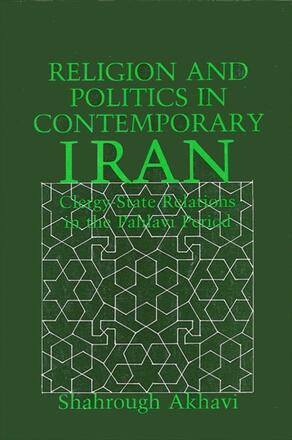
Religion and Politics in Contemporary Iran
Alternative formats available from:
Description
Indispensable for understanding the recent conflicts in Iran, Religion and Politics in Contemporary Iran provides a political history of the fluctuating relationships between the Islamic clergy and Iranian government since 1925. How different factions of the clergy, or ulama first lost and then regained a powerful position in Iran is the subject of this book.
Akhavi analyzes how various factions within the clergy have responded to the government's efforts to encourage modernization and secularization, giving particular attention to the changes in the madrasahs, or theological colleges. He examines the main themes of the AyatullaH Khymayni's book, Islamic Government, and concludes by examining the alignments among the clergy in the past that indicate how they may develop in the future.
Shahrough Akhavi is Associate Professor of Government and International Studies at the University of South Carolina. Religion and Politics in Contemporary Iran is based on research for the Islam and Social Change Research Seminar at the University of Chicago.